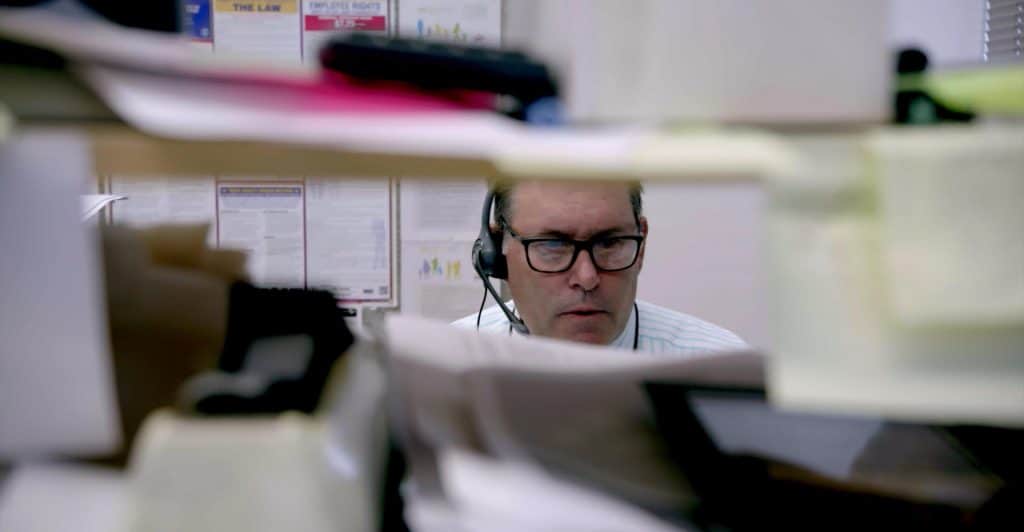A well-intentioned — if conventional — documentary that will be more informative for those who know nothing or close to nothing about the subject
The Panama Papers (2018)
Written and directed by Alex Winter.
In 2015, a mysterious whistleblower by the alias “John Doe” leaked over 11.5 million documents from the records of Panamanian law firm Mossack Fonseca to the German newspaper Süddeutsche Zeitung, including emails, contracts, passport scans, and corporation documents that implicated a large number of wealthy individuals from all over the world in financial fraud and tax evasion. It was the largest leak of confidential documents in history, with such a massive amount of data that the newspaper asked the help of the International Consortium of Investigative Journalists (ICIJ) — an independent network of 376 journalists in over 80 countries who came to uncover a global corruption conspiracy that would pose a serious threat to their safety.
Punctuated by a sober voiceover of John Doe’s manifesto in which he explains his motivations (voice of Elijah Wood), The Panama Papers is a point-blank — if cut-and-dried — account of the collaborative and dangerous effort undertaken by those journalists, who shared their findings on an open-source platform used to search and access documents remotely. This temporary and integrated collaboration disclosed how the law firm set up offshore shell companies to help politicians, celebrities and other powerful people evade trillions of dollars in undeclared taxes, in an elaborate scheme comparable to the money laundering scene from Scarface (1983) — which also appears here as an illustration of the illicit mechanism.
The Panama Papers (and John Doe) defends that this evasion of taxes concentrates money in the hands of a privileged few and contributes to global economic inequality, poverty and even drug trafficking. We see journalists who took part in the project recount the involvement of major banks such as HSBC, and the well-connected figures named in the papers include Argentinian soccer player Lionel Messi, former Prime Minister of the United Kingdom David Cameron and former Prime Minister of Iceland Sigmundur Davíð Gunnlaugsson — who even loses his composure at a certain moment when confronted by the Icelandic press about his connection with an offshore company.
Despite not delving deep enough into the details pertaining to the investigation and even coming off as superficial at times (the reasons attributed to the impeachment of President Dilma Rousseff in Brazil, for instance, are far too simplistic and also inaccurate), director Alex Winter makes a rather compelling case about the dangers faced by those reporters who struggled to maintain their ethics even when being physically threatened or harassed as traitors to their countries (like in the case of the Panamanian newspaper La Prensa), or when met with lawsuits.
The Panama Papers also shows how the discourse is twisted from the other side, as the Russians speak of “Putinophobia” to debunk the journalists’ claims or when Mossack Fonseca compares their role in the scandal to a “knife factory” — which could never be blamed for any misuse of knives. But far more critical is that some people were even assassinated by those wanting to silence them. It was the tragic case of Maltese journalist and anti-corruption activist Daphne Galizia, who was killed in a car bomb attack in 2017 for revealing information relating to several Maltese politicians.
All those incidents highlight the importance of this sort of investigative enterprise, which has the power to expose abuses of power and hold accountable those responsible (the papers have already led to the arrest and resignation of several politicians all over the world). The ICIJ network was awarded the Pulitzer Prize in 2017, while Mossack Fonseca shut down the next year due to the economic and reputational damage caused by the publication of the papers. This may still be in the beginning but is already a reassuring reminder that investigative journalism is not dead.





